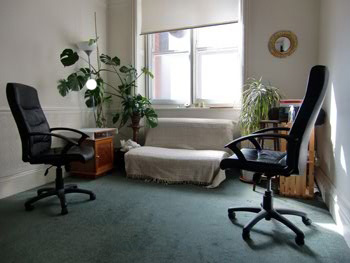Archives
| M | T | W | T | F | S | S |
|---|---|---|---|---|---|---|
| 1 | 2 | |||||
| 3 | 4 | 5 | 6 | 7 | 8 | 9 |
| 10 | 11 | 12 | 13 | 14 | 15 | 16 |
| 17 | 18 | 19 | 20 | 21 | 22 | 23 |
| 24 | 25 | 26 | 27 | 28 | ||
Home from Home
 How important is place?
How important is place?
Let’s start with where we live. What type of a place? A flat, a house? A hostel? A log cabin? Or perhaps – recently becoming a more popular choice – a houseboat? And what about the furnishings, the pictures on the walls, the appliances, the outdoor space? And that big, big issue: location?
Obviously, they’re all extremely important. Where and how we live is a major indicator of who we are, how well we’re doing, our preferences – town or country? city or suburbs? – our taste, our style, what we can afford.
For many today, the question of a place to live is a matter of sheer survival, even in wealthy countries like the UK. Hard to believe that homelessness is an issue when properties are being bought and sold for tens of millions of pounds, but savagely true all the same.
Where we make our home is just one example of the importance of space. Anyone who runs their own business know that the right base can be the key to success or failure. Shops, restaurants, schools, theatres – they need to be in certain areas where the people they want to attract can find them. We therapists have other factors to consider as well.
Recently, I found myself unexpectedly having to look for a new base for my own practice. The very central, very comfortable and convenient consulting room I had used for almost a decade was abruptly no longer available. As I scoured the web for suitable rooms, many questions arose, questions I had not had to ask myself for a long time.
Top of the list, was the ambience of the therapeutic space. I remember once, when my main client group consisted of inmates in a London prison, a therapist who had also worked with offenders told me that on occasion she had carried out sessions in the equivalent of a broom cupboard (prisons aren’t, generally speaking, therapeutically friendly institutions) and they’d been good sessions too. I take my hat off to her, but I knew without a doubt there was no way I could work in a bleak or comfortless setting.
And attractiveness and comfort alone are not the whole story. The vibe has got to be right, too.
In an early Carlos Castanada book, the central character, while wandering the New Mexico desert to experiment with mind-expanding cactus plants and shamanic experiences (you see the therapy analogy!) he is warned by his guide, an old pueblo Indian, that the place one decides to stop for the night must be carefully chosen. If it is the right place, you will be safe; the wrong place, and you could find yourself in extreme danger. That resonated with me. I only have to look back on places where I’ve lived and worked – some beautiful and extraordinary, some far from fabulous -and I can see a clear pattern: the one’s that were right for me and the one’s that I somehow suspected – no matter how good they looked on the surface – that weren’t; and how each of them impacted on my life.
Miraculously, I found my new consulting space in just over a week. Within one more week, I was seeing clients there. It is different. Instead of having a room that is my own unique domain, I now share rooms with others in a thriving and popular therapy centre. So, a real change – and I have changed also. I have had to adapt. At the start, I continually had to negotiate the time slots I needed for the week ahead. I had to make sure I protected my clients’ session spaces, and this became a focus of my work that previously did not exist.
I have now, happily, been allotted my own set room, days and times. But this added task and responsibility, this interaction with the reality of constantly creating space, was an experience that opened me up, energised me. Sometimes it felt like a real hassle, but it always worked out in the end. The people at the Centre were genuinely helpful and understanding, and they welcomed us. Now there is a new dynamic in the way I work, and I feel my practice has entered a whole new phase.
Being forced to move is not a prospect anyone relishes. But without that experience, I might not have known – except theoretically – how much my approach to my practice, and to my clients, is affected by setting. Sometimes we need to move without realising it. A place that once seemed so perfect can turn into a dangerous comfort zone, and suddenly it is not the right place any longer.
I now see the process of having to leave my previous, much appreciated room as an exciting gift, presenting me with a range of new possibilities, and I am truly thankful for it.
